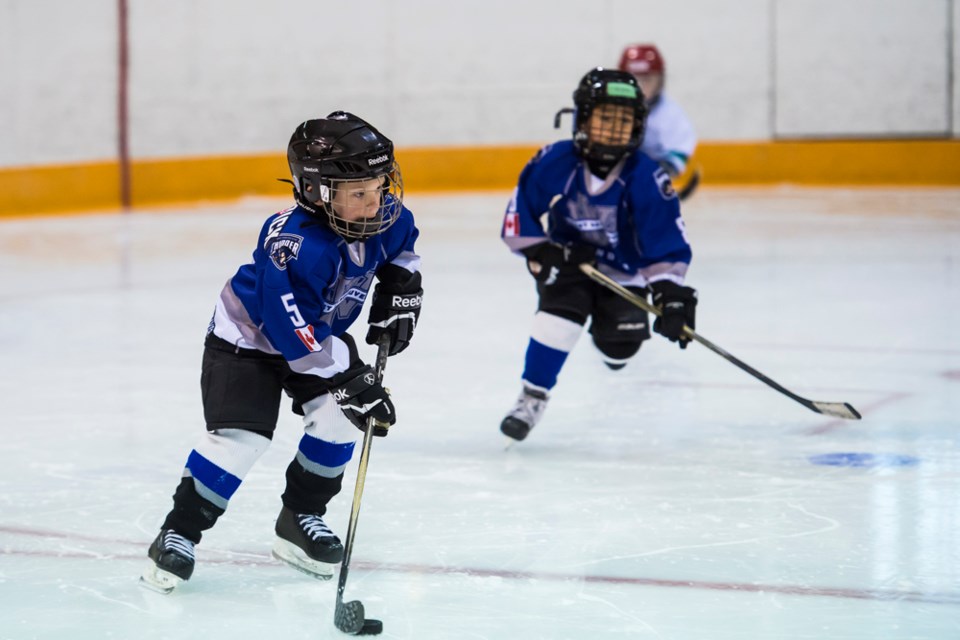The West Vancouver Minor Hockey Association is hoping for a win-win with a new program that will see older players act as volunteer coaches in weekly sessions aimed at introducing children with autism to the sport.
Last month the association quietly posted a sign-up sheet for a new Hockey For Autism program, for boys and girls age 5-13, and the response was overwhelming.
“I’ve been blown away, honestly,” said association president Tom Oberti. “We put one tweet out, which was copied on Facebook and Instagram, and within like 36 hours we were sold out.”
Oberti is hoping that the program, scheduled to run from early April to early June, will prove beneficial for the young athletes taking part as well as a number of older players from the association. High school students in B.C. now have a volunteer/paid work requirement for graduating, and many athletes fulfill those hours by volunteering as coaches and helpers in their respective clubs. West Van Minor Hockey saw that as an opportunity for a meaningful connection that would see older players on the ice helping beginners with autism learn the basics of the game.
“Our Grade 11s and 12s are always looking for volunteer opportunities,” he said. “We thought, well … let’s do something meaningful for them, something which would require some training.”
The aim is to have a ratio that is close to one coach for every player, and all of the volunteer coaches and paid staff coaches taking part in the program will receive training about Autism Spectrum Disorder and tips and techniques for working with children who have autism. The Canucks Autism Network will be involved in the training, as will the Respect in Sport coach certification program.
Oberti is hoping the young volunteer coaches will get as much out of the program as the new players learning the game.
“They’re hopefully learning something that’s worthwhile to them as human beings,” he said. “They have to put some effort in, rather than just your typical bottle drive, the usual stuff we do during the season to give back to the community.”
There should be a lot of benefit for the program’s participants as well, said Oberti, not least of which is a free set of hockey gear included with the $350 registration fee. The free gear – which the players can keep – is part of a movement in the association to make it easier for more kids to try out the sport.
“The whole point is trying to reduce barriers,” said Oberti. “Kids, whether they have autism or not, if they’re not sure about hockey they’re not going to spend $600 to $700 on hockey equipment to kind of dip their toe in the pool.”
Judging by the response to West Van’s new initiative, the demand is there for this type of programming. Oberti said the 13 initial spots in the program – the number is limited by the low coach-to-player ratio as well as COVID-19 restrictions – were quickly filled, with responses coming from families across the Lower Mainland and beyond. Typically minor hockey associations are limited to players in their catchment areas, but that does not apply to this program because there are no other nearby associations offering anything similar. There is now a waiting list for the program, and Oberti is hoping there might be room for a few more participants allowed once COVID protocols have been finalized.
Oberti said they will see how the program goes the first time around, with the potential to offer it again in the future. The spring season is an ideal time as there isn’t as much of an ice-time crunch as there is in winter, he said, adding that he also hopes some players from the program will stick with the sport and join teams the following fall. It all fits into an effort to grow the sport outside of typical hockey hot beds, said Oberti.
“The traditional ‘hockey family’ from the Prairies moving to West Van isn’t really a reality anymore,” he said. “As a community association, it behooves us to try to do things to reach out to the community, and that includes people who aren’t traditional ‘hockey families.’”


